The Anthologist: A Compendium of Uncommon Collections

An introduction to three new anthologies, including What My Father and I Don’t Talk About: Sixteen Writers Break the Silence and Sing the Truth: The Kweli Journal Short Story Collection.
Jump to navigation Skip to content
Articles from Poet & Writers Magazine include material from the print edition plus exclusive online-only material.

An introduction to three new anthologies, including What My Father and I Don’t Talk About: Sixteen Writers Break the Silence and Sing the Truth: The Kweli Journal Short Story Collection.
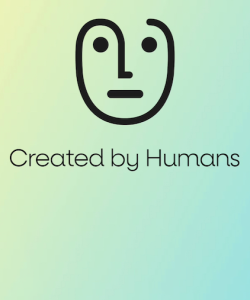
In response to the unauthorized use of books to train large language models, the developers of Created by Humans propose a solution: negotiation between authors and AI companies to help writers control how their work is used.

The author of Late to the Search Party highlights magazines that have offered his lithe, intimate poems a home, including Waxwing and Split Lip Magazine.

In the past decade, the Undocupoets advocacy organization has greatly increased undocumented poets’ visibility as meaningful voices in American poetry. The group plans to push forward in community against the difficulties to come.

Inspired by the possibility of providing complete strangers an opportunity for creativity and catharsis, the Unsent Letter Mailbox started as an interactive urban art project and has now grown into a salon reading series.

In the hostile climate of the current U.S. administration, queer authors persevere through writing and community building, continuing a culture of resistance and defiance that is radically, emphatically, grounded in joy and love.

As the Common celebrates its fifteenth anniversary, founder and editor in chief Jennifer Acker delves into the thinking behind creating a literary organization and magazine devoted to place.
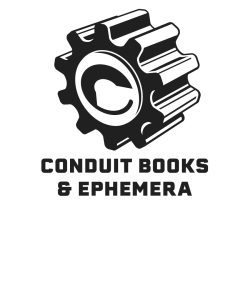
Publishing two poetry books a year, Conduit Books shares the quirky aesthetic of its journal counterpart, Conduit. The press seeks work that is innovative, honest, and sincere, bringing people to poetry and rumination.

The first lines of a dozen noteworthy books, including Hardly Creatures by Rob Macaisa Colgate and Chronicle of Drifting by Yuki Tanaka.

The author of Joyriders highlights journals and platforms that have offered his short stories a home, including Alaska Quarterly Review and American Short Fiction.

Originally an umbrella site for literary journals, this book publisher looks to the wider writing community for inspiration, camaraderie, and collaborators in the art that it makes and promotes.
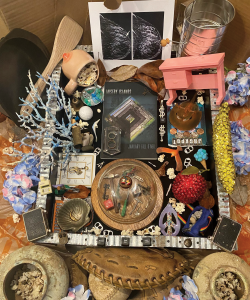
Flower Conroy’s elaborate three-dimensional installations, fashioned from found and crafted objects, masterfully evoke the spirit of each book the artist chooses and carefully communicate her reverence for literature.

Rosie Stewart, the new senior manager of public policy at Penguin Random House’s Intellectual Freedom Taskforce, shares some context for her new role, advice for those who want to get involved, and her hope for the future.

In response to publishers turning to artificial intelligence as a tool to expedite or replace the work of human translators, publishers and translators question whether machine-led translation can truly supersede a human touch.

The first lines of a dozen noteworthy books, including The Figure Going Imaginary by Marianne Boruch and Marginlands: A Journey Into India’s Vanishing Landscapes by Arati Kumar-Rao.

The transcription of Voca, an audiovisual archive of more than twelve thousand poetry recordings, makes literary history accessible to poets, critics, scholars, and the general public.

In the aftermath of the September 2024 hurricane, the literary community has banded together to support North Carolina residents trying to rebuild their lives and has provided hope in the long recovery process.
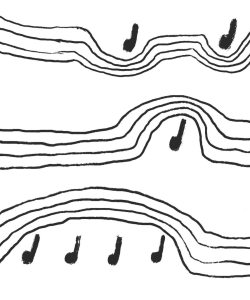
Christine Sun Kim’s art practice uniquely melds different mediums with ASL to address her experience as a Deaf individual in a hearing-centric world, prompting viewers to reflect on accessibility and ableist exclusion.

A century-long art project that pledges a grove of spruces in Norway to print one hundred sealed manuscripts, the Future Library is a source of optimism in the looming climate crisis that we can still build a future full of stories.

Publishing around half a dozen novellas, poetry collections, and graphic novels yearly, Driftwood Press resists narrowing itself to a specific niche; instead, the press is defined by its diversity in stories, styles, and perspectives.

Continuing its legacy of helping industry professionals discover untapped talent, the Black List has added fiction to the roster of manuscripts shared through its site—a move that could create a new pathway to publication for novelists.

The new executive director of Words Without Borders, Elisabeth Jaquette, speaks on translation as an art and a profession as well as her goals to spotlight new global voices and help set best practices in the field.
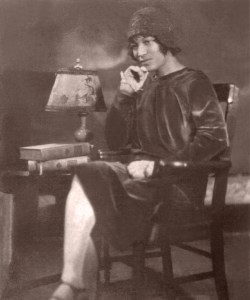
More than sixty years after her passing, Zora Neale Hurston’s newly published novel, The Life of Herod the Great, reimagines archival materials and prompts reflection on the legacies of historical figures and literary objects.

The author of The Dreamcatcher in the Wry spotlights journals and platforms that have published her work and appreciate her wry sense of humor, including the Belladonna and Hunger Mountain.
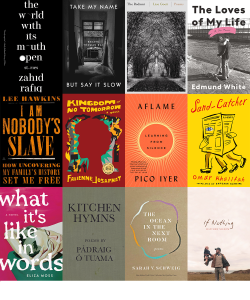
The first lines of a dozen noteworthy books, including The World With Its Mouth Open by Zahid Rafiq and What It’s Like in Words by Eliza Moss.